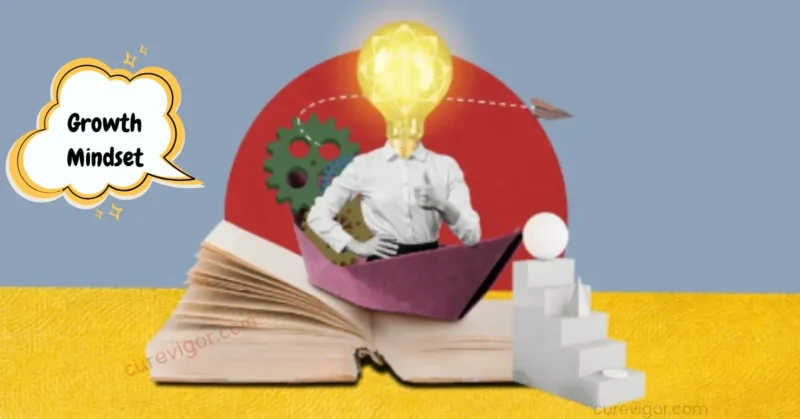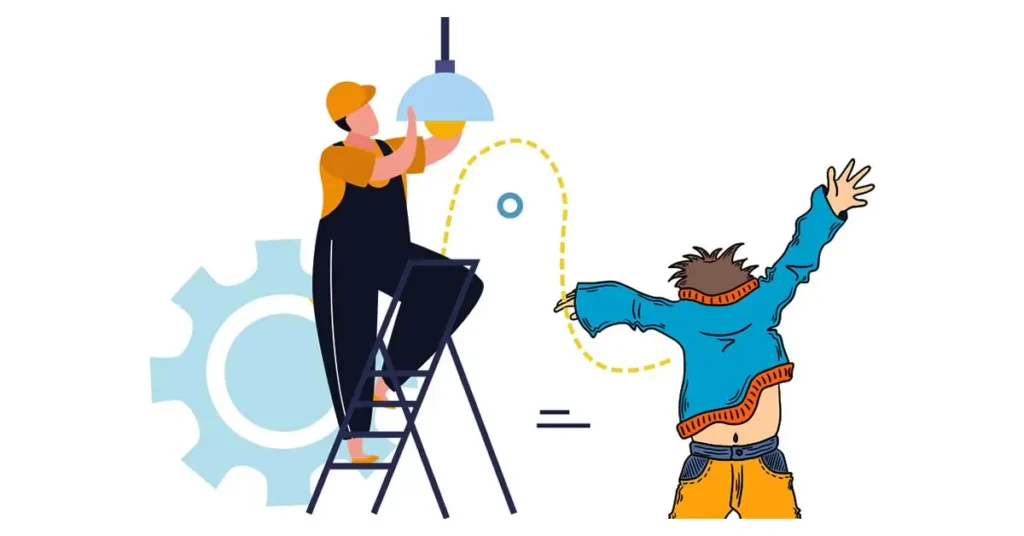Unlock Carol Dweck’s Growth Mindset secrets. Learn the power of ‘yet’ and how ‘I can improve’ transforms lives. Read the full guide now!
Thank you for reading this post, don't forget to subscribe!How Carol Dweck’s ‘The Power of Believing That You Can Improve’ Can Transform Your Life
Imagine a life where every setback is just a setup for a comeback. This is the life-changing power of saying, “I can improve.” It’s not just a phrase; it’s a mindset that can revolutionize the way you approach challenges, learning, and growth.
Carol Dweck, a renowned psychologist, delves into this transformative concept in her TED Talk, ‘The Power of Believing That You Can Improve,’ which has inspired millions worldwide.
Who Is Carol Dweck?

Carol Dweck: A Pioneer in Psychology
Carol Dweck is a leading figure in the field of psychology, particularly renowned for her extensive research on the themes of motivation, personality, and the development of human potential.
She is a professor of psychology at Stanford University. She has become widely recognized for her contributions to the theory of mindsets, which has revolutionized the way people perceive learning and personal growth.
Dweck’s groundbreaking book, “Mindset: The New Psychology of Success,” published in 2006, brought her theories into the mainstream, influencing educators, business leaders, athletes, and everyday individuals seeking personal development.
Her research has shed important light on why some people flourish in the face of adversity while others are demoralized by it.
The core of her research lies in the concept of the growth mindset, a term she coined to describe a way of thinking that empowers people to reach their full potential.
The Concept of Growth Mindset
The concept of a growth mindset, popularized by psychologist Carol Dweck, is based on the belief that skills and abilities are not fixed traits but can be cultivated through effort, persistence, and a willingness to learn.
This empowering perspective encourages individuals to view challenges as opportunities for growth rather than obstacles to fear.

What Is a Growth Mindset?
A growth mindset is a belief system that suggests intelligence and talents can be cultivated through hard work, good strategies, and input from others.
A growth mindset sees failure not as a failure, but as an opportunity to learn and improve. The idea that came to us from Carol Dweck.
They understand that effort is the path to mastery, and they are not afraid to make mistakes because they know these mistakes are part of the learning process.
When you adopt a growth mindset, you believe that:
- Effort leads to improvement: Hard work and persistence are crucial components of success.
- Challenges are opportunities: Instead of avoiding difficulties, you welcome them as chances to learn.
- Learning is a continuous journey: You never stop growing; there is always room for improvement.
Carol Dweck’s research showed that people who adopt a growth mindset are more resilient, more willing to take risks, and better at overcoming obstacles.
Because it enables people to realize that their potential is limitless, this mindset is particularly significant in the fields of education and personal growth.
The Opposite: Fixed Mindset
A fixed mindset, on the other hand, is the conviction that one’s skills, intelligence, and abilities are unalterable and unchanging. People with a fixed mindset occasionally think that no amount of effort will change their innate capacity for action.
This belief system leads to a fear of failure, a reluctance to try new things, and a tendency to give up easily when faced with challenges.
Characteristics of a fixed mindset include:
- Avoiding challenges: Fear of failure makes people with a fixed mindset shy away from tasks that might be difficult.
- Giving up easily: When faced with setbacks, they often give up instead of pushing through.
- Ignoring feedback: They see constructive criticism as a personal attack rather than a tool for growth.
- Feeling threatened by others’ success: They may feel jealous when they see others succeed, believing it diminishes their own abilities.
A fixed mindset limits growth because it creates a mental block against improvement. Instead of striving for growth and learning, individuals with this mindset tend to stick with what they already know and feel comfortable doing.
How Growth Mindset Transforms Lives
The distinction between a growth mindset and a fixed mindset is profound, as it determines how people approach life’s challenges. When you have a growth mindset, you’re more likely to:
- Embrace lifelong learning: You continually seek new knowledge and skills, even in areas where you may not feel confident.
- Develop resilience: You’re better equipped to handle setbacks because you see them as opportunities for growth.
- Achieve greater success: By focusing on effort and persistence, you unlock your true potential and achieve more than you thought possible.
Carol Dweck’s work has influenced how schools teach students, businesses train their employees, and even how parents raise their children.
It has provided a framework for understanding why some people can overcome difficulties and thrive, while others remain stuck in a cycle of frustration and stagnation.
Growth Mindset vs. Fixed Mindset: The Key Differences
| Aspect | Growth Mindset | Fixed Mindset |
| Belief about skills | Can be developed through effort | Are innate and unchangeable |
| Response to failure | Views it as a learning opportunity | Sees it as a sign of incompetence |
| Approach to challenges | Welcomes them as chances to grow | Avoids them out of fear of failure |
| Attitude towards effort | Sees it as essential for success | Believes it shows a lack of ability |
According to Carol Dweck, adopting a growth mindset instead of a fixed mindset opens up a world of opportunities. You make the powerful transition from “I can’t do this” to “I can’t do this yet,” which creates space for development and progress.
Carol Dweck’s research on the growth mindset has revolutionized how we think about learning and personal development. It teaches us that with the right mindset, we can change our brains, improve our skills, and achieve our goals.
Whether you’re a student, a professional, or a parent, embracing a growth mindset can help you reach your full potential and lead a more fulfilling life. It’s about believing in the power of “I can improve,” by Carol Dweck, even when faced with obstacles.
Why ‘I Can Improve’ Matters

The phrase “I can improve” is more than just a positive affirmation; it’s a reflection of a growth mindset. It embodies the core belief that your skills, abilities, and intelligence are not fixed traits but can be developed with effort, learning, and perseverance.
This mindset shift, from “I can’t do this” to “I can learn to do this,” is a small change with a massive impact on your outlook and actions. By adopting this phrase as a guiding principle, you open yourself up to endless possibilities and continuous self-improvement.
Shifting Focus to Growth
Can’t you forget Carol Dweck? When you tell yourself, “I can improve,” you stop seeing your current limitations as permanent.
Instead of feeling stuck or defeated when you encounter something challenging, you start to view it as an opportunity to expand your skills and knowledge. This change in focus helps you:
- Overcome self-doubt: You start to believe in your capacity for growth, which boosts your confidence.
- Increase motivation: The belief that improvement is possible keeps you driven to put in the effort needed to achieve your goals.
- Take action: Rather than avoiding difficult tasks, you take proactive steps to learn, practice, and develop new skills.
Lessons from Carol Dweck’s TED Talk
In her TED Talk, Carol Dweck explains the profound impact of the growth mindset using simple yet effective principles. Her message resonates deeply because it offers a new way of thinking about failure, challenges, and success.
1. Embracing Challenges
One of the key lessons from Dweck’s TED Talk is the importance of embracing challenges. She argues that challenges are not roadblocks but rather stepping stones on your journey to success.
When you face a difficult task, your initial reaction might be to avoid it, especially if you fear failure. However, a growth mindset encourages you to lean into the discomfort of a challenge because that’s where real learning happens, and you also remember Carol Dweck.
- Challenges build strength: Just as lifting heavier weights in the gym makes your muscles stronger, tackling more difficult problems sharpens your mind.
- Growth opportunities: Every challenge you take on provides a chance to develop new skills and gain experience.
- Increased self-awareness: You become more aware of your areas of strength and growth by taking on obstacles.
2. Learning from Mistakes

Mistakes are often viewed as failures, but in reality, they are valuable learning opportunities. In her TED Talk, Dweck emphasizes that mistakes are an essential part of the learning process.
When you make a mistake, it’s not a sign of incompetence; it’s a sign that you are pushing beyond your current abilities and testing your limits.
- Reframe mistakes: Instead of seeing them as failures, view mistakes as feedback that can help you adjust your strategies.
- Analyze and adapt: Examine the issues and determine what you can do better the next time.
- Cultivate resilience: Each time you learn from a mistake, you become more resilient and better prepared for future challenges.
3. The Power of ‘Yet’
One of the most memorable ideas from Carol Dweck’s TED Talk is the power of the word “yet.”
This small word has a big impact on your mindset. Instead of saying, “I can’t solve this problem,” say, “I can’t solve this problem yet.” The word “yet” keeps the door open for growth and improvement.
- It encourages perseverance: By adding “yet,” you remind yourself that just because you can’t do something now doesn’t mean you’ll never be able to.
- It shifts your thinking: The word “yet” helps you focus on the process of learning and growth rather than on immediate results.
- It builds a positive outlook: It transforms your thoughts from a fixed mindset to a growth-oriented one, helping you stay hopeful and determined.
How ‘I Can Improve’ Transforms Your Life
Adopting the mindset of “I can improve” has profound effects on different aspects of your life. It changes how you approach challenges, how you handle setbacks, and how you view your own potential.
1. Building Resilience
Believing that you can improve makes you more resilient. When you face setbacks, you are less likely to see them as failures and more likely to view them as temporary obstacles. Instead of giving up, you bounce back faster and look for ways to overcome the difficulties.
- Growth mindset vs. victim mindset: Rather than feeling helpless or defeated, you take control of your situation and look for ways to move forward.
- Bouncing back stronger: Each time you recover from a setback, you build mental toughness and resilience.
- Fostering a ‘can-do’ attitude: With a growth mindset, you believe that you have the power to change your circumstances through effort and learning.
2. Enhancing Problem-Solving Skills
When you believe that you can improve, you become more open-minded and creative in finding solutions to problems. Instead of feeling limited by your current abilities, you are more willing to experiment, try new approaches, and think outside the box.
- Greater flexibility: You are not tied to one way of doing things and are willing to adapt your strategies as needed.
- Innovative thinking: Instead of clinging to the same old approaches, a growth mindset motivates you to find novel answers.
- Persistence in problem-solving: You keep pushing through obstacles because you believe that, with effort, you can find a way to succeed.
3. Strengthening Relationships
The mindset of “I can improve” doesn’t just benefit you; it also affects your relationships with others. It makes you more understanding and compassionate, as you recognize that everyone is capable of growth.
- Encourages empathy: You become more patient with others, understanding that they, too, are on a journey of learning and development.
- Fosters better communication: A growth mindset helps you give and receive constructive feedback without taking it personally.
- Promotes collaboration: You see the value in working together and learning from others, rather than competing to prove your own abilities.
The Science Behind the Growth Mindset
The growth mindset is not just a feel-good concept; it’s grounded in science. Fundamentally, the amazing capacity of our brains to adapt and change—a process known as neuroplasticity—supports this way of thinking.
Understanding the science behind a growth mindset helps you appreciate why adopting this perspective can lead to real, measurable improvement in every area of life.
Neuroplasticity Explained
The human brain is far more adaptable than we once believed. The term neuroplasticity refers to the brain’s ability to reorganize itself by forming new neural connections throughout life.
This flexibility means that when you learn new skills, challenge your thinking, or adopt new habits, your brain physically changes.
- New neural pathways: When you practice a new skill, your brain creates new pathways, making it easier to perform that skill over time.
- Strengthening connections: Repeated practice strengthens these pathways, much like how a muscle grows stronger with exercise.
- Adaptability: Your brain can adapt to new situations and learn from mistakes, proving that abilities are not fixed but can be improved with effort.
Neuroplasticity is the scientific foundation for the growth mindset. It shows that your brain can continue to grow and change throughout your life, supporting the idea that with practice and perseverance, you can enhance your abilities.
Evidence from Research
Research has consistently shown that people with a growth mindset tend to excel in various aspects of life. Unlike those with a fixed mindset, individuals who believe in the growth potential are more likely to:
- Perform better academically: Students who believe their intelligence can grow often show higher levels of motivation and academic achievement. They are more likely to take on challenging tasks and persist even when faced with difficulties.
- Achieve professional success: Employees who adopt a growth mindset tend to embrace new projects and learning opportunities. They handle constructive criticism better and continuously look for ways to improve their performance.
- Enhance their personal well-being: A growth mindset contributes to better stress management. Instead of feeling overwhelmed by problems, you view them as solvable and actively look for solutions, which reduces anxiety and increases overall happiness.
Real-Life Examples of Growth Mindset
Many successful people’s lives demonstrate the influence of a development mentality. These examples show how embracing the belief that “I can improve” can lead to remarkable achievements.
Famous Personalities Who Embrace ‘I Can Improve’
- Michael Jordan is widely regarded as one of the greatest basketball players of all time. Michael was cut from his high school basketball team.
Instead of giving up, he used the setback as motivation to work even harder, famously stating, “I have failed over and over again in my life, and that is why I succeed.”
Jordan’s career is a testament to the power of perseverance and a growth mindset. - Oprah Winfrey: Oprah faced numerous obstacles, including a difficult childhood and early career setbacks.
However, her belief in her ability to grow and learn pushed her to become one of the most influential media personalities in the world. She frequently discusses the value of resilience and ongoing personal development.
Everyday Examples You Can Relate To!
- Learning a new skill later in life: Consider a friend who decided to learn a new language in their 30s or 40s. Despite the challenge, they persisted, proving that it’s never too late to acquire new skills.
- Career change: Think of a colleague who switched careers after spending years in a different field. Their willingness to start fresh, learn, and adapt demonstrates a powerful growth mindset.
They didn’t let the fear of the unknown hold them back; instead, they embraced the opportunity to improve and grow.
How to Adopt the ‘I Can Improve’ Attitude
Shifting from a fixed mindset to a growth mindset doesn’t happen overnight. You can, nevertheless, begin to believe in your capacity to get better with regular practice and a few essential techniques.
Practical Tips to Shift Your Mindset
- Embrace challenges as opportunities: Instead of shying away from difficult tasks, see them as chances to learn something new.
- Replace negative self-talk with empowering statements: Whenever you catch yourself thinking, “I’m not good at this,” add the word “yet” and remind yourself that you’re still learning.
- Reflect on your progress, not just your failures. Regularly take note of how far you’ve come and celebrate the small wins along the way.
Daily Affirmations and Self-Talk
Positive self-talk can be a powerful tool in reinforcing a growth mindset. Use daily affirmations like:
- “I am improving every day.”
- “Every challenge I face is an opportunity to grow.”
- “I have the power to learn and develop new skills.”
Starting your day with these affirmations sets a positive tone and encourages you to approach tasks with a mindset focused on growth and learning.
‘I Can Improve’ in Education
The growth mindset has significant implications in education, influencing both teaching methods and student outcomes.
How Teachers Can Foster a Growth Mindset in Students
Teachers play a crucial role in helping students develop a growth mindset. Here’s how they can do it:
- Praise effort, not talent: Instead of saying, “You’re so smart,” teachers can say, “You worked really hard on this.” This encourages students to value effort and persistence over natural ability.
- Encourage a love for learning: By fostering curiosity and a willingness to try new things, teachers help students see learning as a lifelong journey.
- Normalize mistakes: When teachers treat mistakes as part of the learning process, students are less afraid to take risks and more willing to try challenging tasks.
Applying ‘I Can Improve’ in the Workplace
A growth mindset can transform the workplace, enhancing team performance and fostering a culture of innovation.
Enhancing Team Performance
When employees believe in their ability to improve, they are more open to feedback and collaboration. This attitude creates a positive work environment where:
- Ideas flow freely: Team members are not afraid to share suggestions, knowing that innovation often comes from trial and error.
- Continuous learning is encouraged: Organizations that support a growth mindset invest in employee development, resulting in a more skilled and adaptable workforce
Encouraging Innovation
Companies that embrace a growth mindset culture are more likely to innovate successfully. Employees feel safe experimenting and trying new approaches because they know that mistakes are part of the creative process.
Overcoming Obstacles with a Growth Mindset
Challenges and setbacks are a part of life, but a growth mindset helps you see them differently. Instead of viewing obstacles as barriers, you see them as opportunities for growth and learning.
This shift in perspective makes it easier to persevere, even when things become tough.
The Role of Parents in Cultivating a Growth Mindset
Parents have a significant influence on shaping a child’s mindset. By encouraging effort, praising persistence, and teaching children that it’s okay to make mistakes, parents can help instill a growth mindset early in life.
- Encourage trying new things: Let children experiment and explore without fear of failure.
- Model a growth mindset: Show your willingness to learn and grow, demonstrating that learning is a lifelong process.
- Celebrate the process, not just the outcome: Focus on the effort your child puts in, rather than just the result.
By adopting and promoting the belief by Carol Dweck that “I can improve,” both individuals and families can build a strong foundation for lifelong success and happiness.
FAQs on Lessons from Carol Dweck’s TED Talk
Q. How can I start developing a growth mindset today?
To develop a growth mindset, begin by challenging your inner critic. When you encounter negative thoughts like “I’m not good at this,” add the word “yet” and remind yourself that you are still learning.
Set small, achievable goals and celebrate your progress. Also, be open to feedback, as it helps you identify areas for growth. Remember, it’s about making steady improvements, not perfection.
Q. Why is the word ‘yet’ influential in developing a growth mindset?
The word “yet” is transformative because it implies potential and ongoing progress. When you say, “I can’t do this yet,” you acknowledge that you may not have mastered a skill but leave room for future improvement.
It shifts your perspective from feeling stuck to feeling capable of growth. This simple addition can make you more patient with yourself and motivated to keep trying, knowing success is still possible.
Q. How can the phrase ‘I can improve’ help in stressful situations?
Saying “I can improve” during stressful times helps you reframe the challenge as a learning opportunity rather than a threat. It reduces anxiety by focusing on what you can control—your effort and your willingness to adapt.
Instead of fearing failure, you view the situation as a chance to grow. This mindset not only calms your nerves but also makes you more resilient and better equipped to handle pressure.
Q. What are some practical steps to embrace mistakes as learning tools?
To use mistakes as learning tools, start by viewing them objectively instead of emotionally. Ask yourself, “What can I learn from this mistake?” and take note of the lessons.
Break down what went wrong and brainstorm ways to approach the task differently next time. Keep a journal of your mistakes and your reflections on them. This process helps turn setbacks into valuable experiences that guide your future actions.
Q. Can a growth mindset impact my career or business success?
A growth mindset can be a game-changer for your career and business. It makes you more adaptable to change and more willing to take on new challenges, which are critical traits in a fast-paced work environment.
Leaders with a growth mindset encourage innovation and inspire their teams to keep learning. Employees who believe in their capacity to improve tend to seek out training opportunities, excel in their roles, and contribute more creatively to projects, leading to overall business growth.
Conclusion on Lessons from Carol Dweck’s TED Talk
The phrase “I can improve” is a simple yet powerful declaration by Carol Dweck that embodies the essence of a growth mindset. It’s a shift in thinking that opens up a world of possibilities, turning challenges into opportunities and mistakes into learning experiences.
By adopting this mindset, you empower yourself to continue growing, learning, and achieving your full potential. Remember, it’s not about being perfect; it’s about believing in your ability to grow and improve over time.
Incorporating this mindset into your daily life can lead to profound changes in how you approach problems, setbacks, and relationships. So next time you find yourself thinking, “I can’t do this,” add a small but mighty word: “yet.” You’ll be amazed at the difference it makes.
Read more articles on Health and Wellness Tips.
You might like to read:

